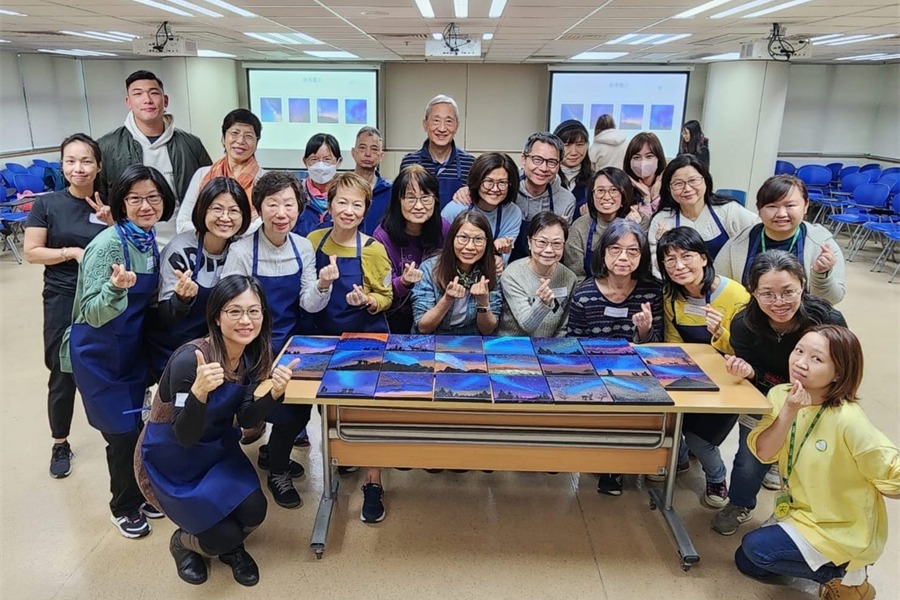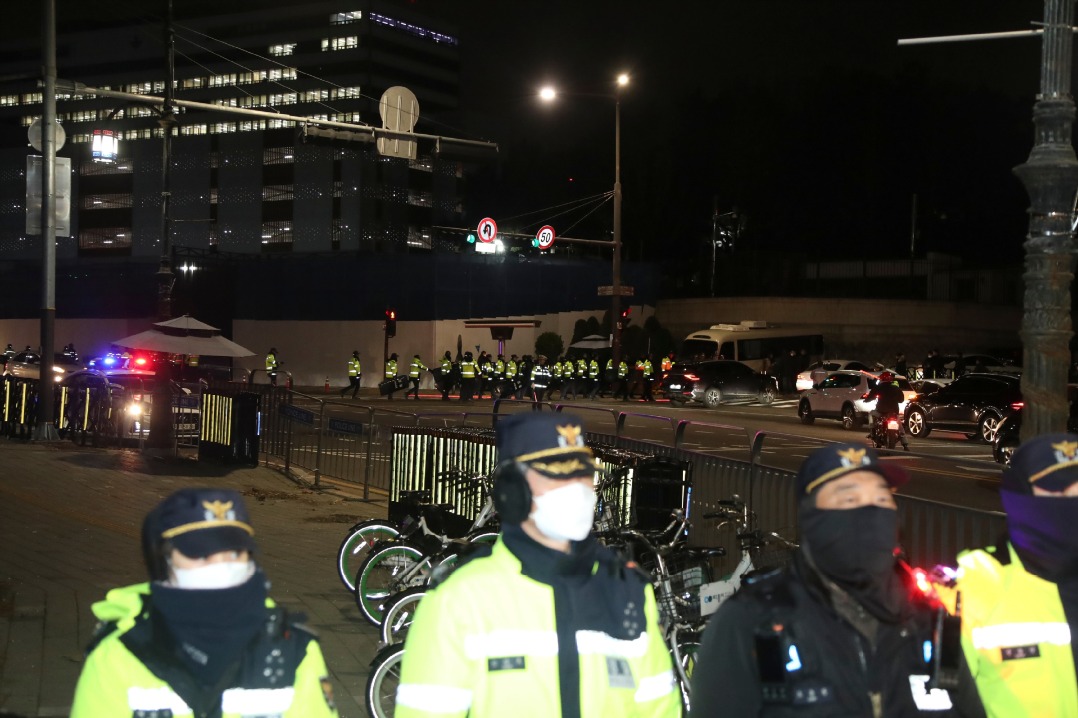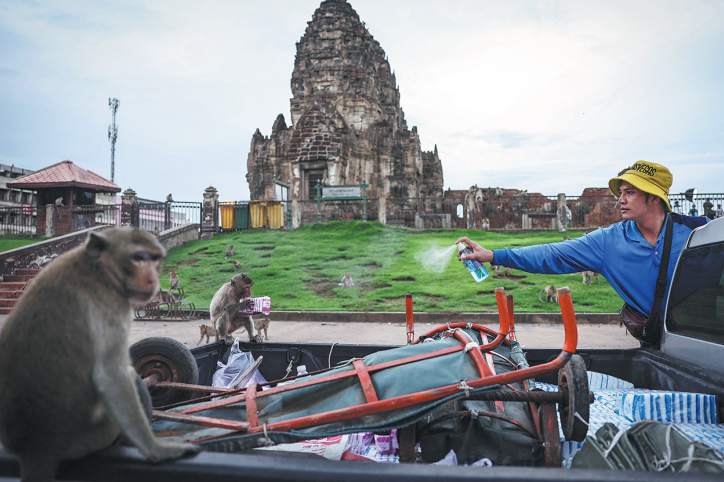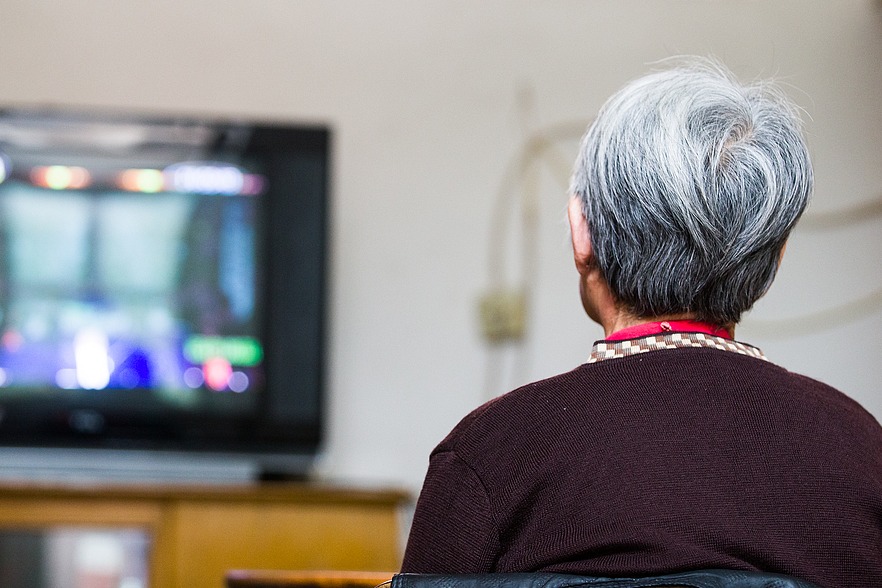Sanctions imposed on ex-US officials
By MO JINGXI in Beijing and LIA ZHU in San Francisco | CHINA DAILY | Updated: 2021-01-22 06:54
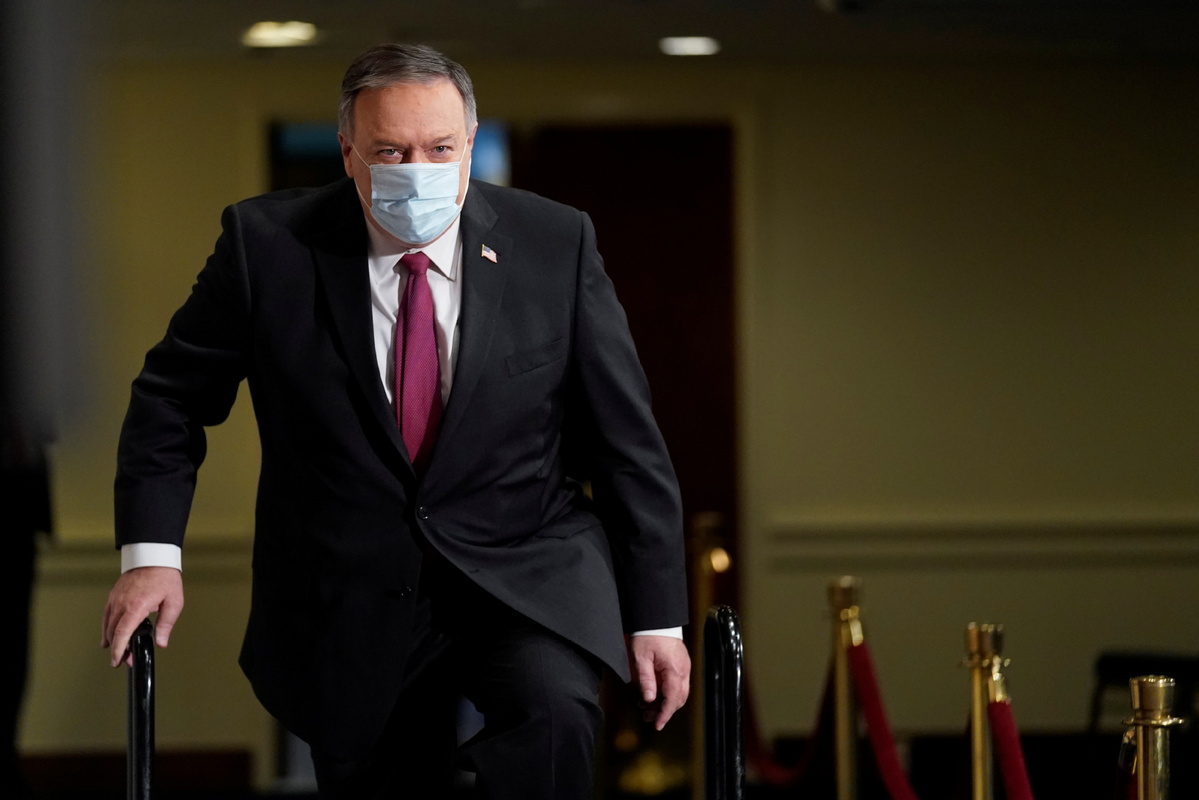
Foreign Ministry says politicians who damage ties will pay for their crazy acts
China has imposed sanctions on 28 US individuals, including former secretary of state Mike Pompeo and former White House trade adviser Peter Navarro, in a strong response to the series of "crazy" policy moves by China hawks in the previous United States administration.
"Over the past four years, the Trump administration, especially Pompeo, has buried too many mines in US-China relations that need to be removed, burned too many bridges that need to be rebuilt, and destroyed too many roads that need to be repaired," Foreign Ministry spokeswoman Hua Chunying said on Thursday.
"Some anti-China politicians in the United States planned, worked on and made a lot of crazy moves that severely interfered in China's internal affairs, undermined China's interests, hurt the Chinese people's sentiments and damaged China-US relations. China has pointed out multiple times that these anti-China politicians will pay for their crazy acts," she said.
"The sanctions, which are justified and necessary, fully show the Chinese government's firm determination to uphold our own national interests," Hua told reporters at a regular news briefing in Beijing.
The sanctions were announced in a statement issued early on Thursday, shortly after US President Joe Biden took the oath of office in Washington.
The ministry said the sanctioned ex-officials have seriously violated China's sovereignty and have been mainly responsible for such US moves on China-related issues.
The list also includes former health and human services secretary Alex Azar, former national security adviser Robert O'Brien, former US ambassador to the United Nations Kelly Craft, former deputy national security adviser Matthew Pottinger, former national security adviser John Bolton and former White House chief strategist Steve Bannon.
The sanctions prohibit those individuals and their immediate family members from entering the Chinese mainland, Hong Kong and Macao. They and companies and institutions associated with them are also restricted from doing business with China.
"The Americans on the sanctions list well deserve it. They are among those most responsible for promulgating the worst lies about China for the purpose of China bashing," said George Koo, a member of the Committee of 100 and a retired international business adviser in Silicon Valley.
"Their actions and words have poisoned bilateral relations between China and the US and will require a concerted effort by both countries over a period of time to undo the damage," he said.
Since 2016, the US administration took a more confrontational stance toward China. Pompeo was the most prominent among those China hawks.
Zhu Feng, dean of the Institute of International Relations at Nanjing University, said the sanctions are a powerful counterattack to the previous US sanctions on more than 30 Chinese officials under the pretext of Xinjiang and Hong Kong-related issues.
"The sanctions send a clear signal that China will never retreat or be intimidated" by the US, he said.
Julie Tang, co-founder of Pivot to Peace, an organization dedicated to advocating US-China peace, said that the effects of sanctions could be economically devastating for these ex-officials who are now looking for jobs in private corporations as consultants.
A spokesperson for the Hong Kong and Macao Affairs Office of the State Council said on Thursday that Pompeo brought the sanctions upon himself due to his brazen interference in Hong Kong affairs and the severe damage done to Hong Kong's prosperity and stability.
"Those who want to continue to intervene in Hong Kong affairs and even want to launch a Hong Kong version of a 'color revolution' are doomed to fail in a disgraceful way," the spokesperson said in a statement.
Tam Yiu-chung, a Hong Kong member of the National People's Congress Standing Committee, said that the sanctions, involving a ban on entering Hong Kong and restrictions on doing business with China, will weaken the individuals' ties with Hong Kong activists seeking foreign intervention, and will therefore impair foreign forces' influence in Hong Kong.
Zhu Fenglian, a spokeswoman for the Taiwan Affairs Office of the State Council, on Thursday also voiced strong support for the imposition of sanctions on those in the US who have behaved egregiously on the Taiwan question.
Zhu said Taiwan's ruling Democratic Progressive Party, colluding with anti-China politicians in the US, is acting as a pawn of anti-China forces and selling out national interests.
The DPP "will be judged and punished by history", she said.
Gang Wen in Hong Kong contributed to the story.






